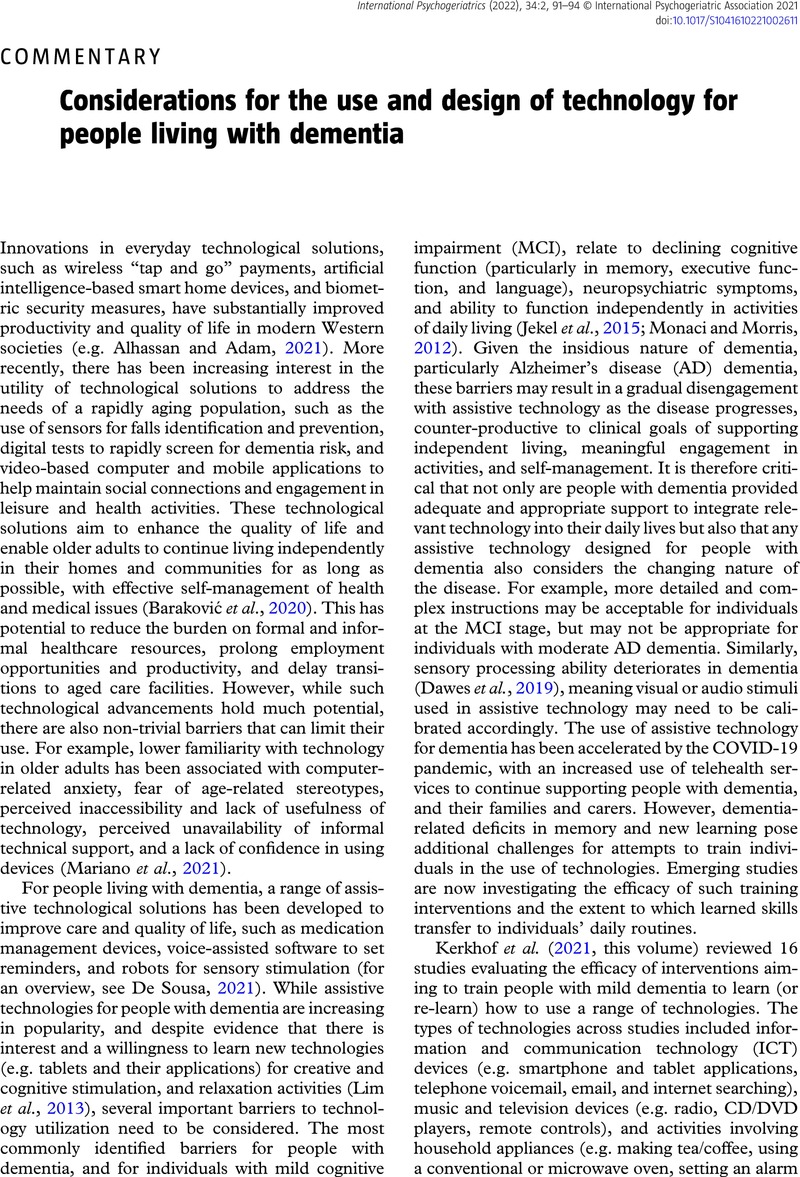Crossref Citations
This article has been cited by the following publications. This list is generated based on data provided by Crossref.
Bird, Laura J.
McCabe, Melinda
Lim, Yen Ying
and
Cornish, Kim
2023.
Prevalence and correlates of subjective cognitive concerns in Australian university students during the COVID-19 pandemic.
Frontiers in Psychology,
Vol. 13,
Issue. ,



